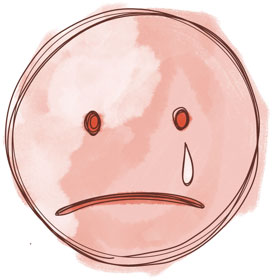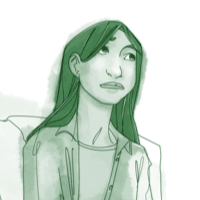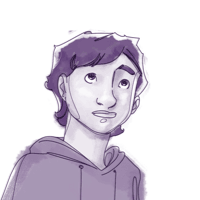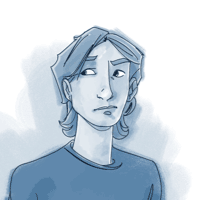


Talking About Death and Dying
“Unless she brings it [discussion of death] up, like, I’m not gonna bring it up…‘cause I don’t want to make her any sadder than she already is. ”

This is a tough topic. We don’t know many people who like to talk about this subject. Most people run far from it. But what we know is how important it is to talk about loss and express your feelings, because this can be a really difficult time.
You and your family deserve to talk about how things are changing, what the loss of your family member will look like, and what do you do after they are gone. Pushing these feeling down can only make things worse—sometimes many years later. So, having honest open conversation now is so important.
What do you ask? What do you want to know? Everyone has questions, including young caregivers like you.
- What will the death look like?
- How will it be handled?
- Will my parent remain in the home?
- Can I be present during the death?
- What will happen to me when the death occurs?
- What will the services or funeral look like?
- What supports are in place?
- Where will we live after the parent dies?
Do any of these questions sound familiar? You may not have wondered about all of them. But I bet you wondered about at least one. These are very important questions because they help you and your family process the next steps and how things will change.

Lara
Even though her family never talked about ALS, they always talked about death and dying—which may seem odd.
It was like they jumped right past the diagnosis, care, and treatment and went right to the fact that he was dying. Lara thought this was cultural, since her culture was pretty focused on death and dying, but it still seemed strange and made her feel like it was an incomplete story. She needed to talk it out.
If you were Lara, what would you do?
-
Since her family is so open about death, Lara talks to her cousins a lot. But what Lara really wants is to talk to friends about other things—not to ignore that her uncle will die, but to make her feel more like a kid. She has told her friends but let them know that while she is OK talking about it, she does not want them to treat her differently. She wants to be a normal kid and get away from it every now and then.
-
Talking about death and dying was oddly normal in her family—except when it came to talking to her mom. She still cried all the time and could barely talk about her uncle. Lara desperately wanted to talk to her mom. What would she do when her uncle died? Would her mom ever get over it? Would Lara have to step up and be the mom to her sister? Lara was starting to freak out, so she went to her school counselor. The counselor had heard about Lara’s uncle but had never talked to Lara about it—instead letting Lara come to her. Lara told her all about how her family barely talked about ALS but was so weird about death. About how her mom cried all the time and Lara’s fear that her mom would never recover. The counselor was super helpful—mostly because she just let Lara talk, which felt good. Also, because she was not in Lara’s family or community, so Lara could say what she wanted without it getting back to her mom. The counselor helped her create some discussion scenarios with her mom and lots of “what ifs.” This was super helpful. Lara decided to go home and start talking to her mom…
-
Despite the fact that her family was open to talking death and dying, Lara did not want to talk about it. It made her sad to think that her uncle would not be with them one day, and there was nothing she could do to prevent that. Her mom preferred not to talk to Lara about it, and she didn’t like discussing the topic with her friends. She just wanted to be a normal kid. Lara tried to hide her feelings and not think about what would happen when her uncle died. But she was struggling in school and having bad dreams at night.
Continue the Journey
You Made ItView another journey in “Talking About Death and Dying”

